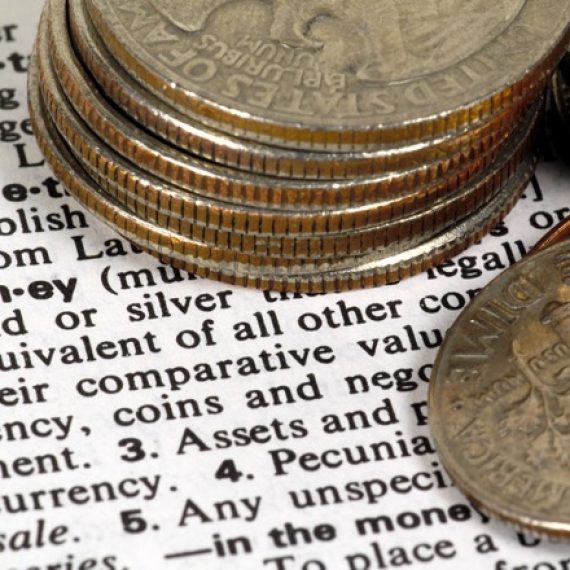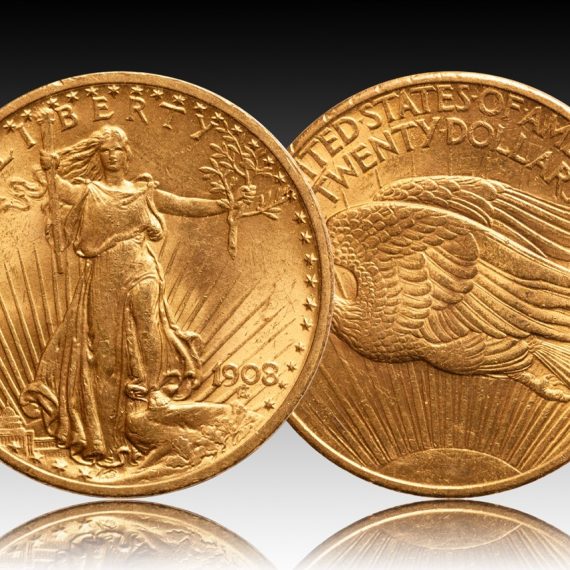May 18, 1998 – A full contingent of European finance ministers and central bankers met on May 2nd to take additional steps toward the creation of the new European Central Bank and the proposed single currency for Europe, the Euro. These steps included the appointment of the ECB’s first governor and the identification of those countries that meet the criteria to join the new single currency.
Absent from the discussions, however, was any mention of Gold. And for that matter, there also was no reference to the composition of the foreign reserves that will be used to back, and therefore support, the new Euro.
This lack of news during and since the meeting has not helped the Gold price. The uncertainty about what policy the ECB will follow with regard to the Gold now in the coffers of various central banks in Europe has weighed heavily on the Gold price. Until some formal announcement is made about this Gold, the market will remain nervous because of the possibility of further central bank dishoarding from Europe. In this regard, the Gold dishoarding by two central banks in particular have been noteworthy.
Both Belgium and the Netherlands have dishoarded Gold in recent years, so both of these central banks are viewed to be ‘weak hands’. However, the Belgians have now dishoarded practically all of their Gold, so they are no longer a factor of importance to the market. But not so the Dutch central bank, which still reports holding some 1,000 tonnes of Gold.
I stated a number of times last year as well as this year that I believe the Dutch have dishoarded some 300-500 tonnes of Gold, and these amounts have not yet been reported. Also, I had expected this dishoarding to be announced some time in the early part of this year, and in any case, no later then the formal creation of the ECB.
The new ECB was created on May 2nd, but there still has been no announcement from the Dutch. Am I wrong in thinking that the Dutch have dishoarded a major portion of their Gold? Or is an announcement yet to be made? Or is some other interpretation/explanation possible?
A new theory about the Dutch and the Gold in their central bank has recently been floated, and it does have some merit. According to this line of thinking, the Dutch are still in the process of dishoarding all or a major portion of their 1,000 tonnes of Gold. Therefore, no announcement has been made by the Dutch because their dishoarding is not yet finished, which also explains why the new ECB policy regarding foreign reserves – including the amount of Gold it will hold and the amount and composition of the reserves to be transferred to it by each member country – has not yet been announced.
No announcement has been made by the new ECB about its future Gold policy because the new ECB governor (who by coincidence is Dutch) is purposefully allowing the Dutch – with the tacit approval of each of the member countries in the monetary union – to complete their dishoarding before the ECB makes any definitive and formal policy statement about foreign reserves and Gold. The absence of any policy statement by the ECB allows each member country to continue to deal with its Gold as it sees fit, namely, to continue holding their Gold or to dishoard it.
Therefore, for now, the Gold and these decisions about its disposition remain within the control of the individual country in whose central bank the Gold now rests. However, this control over the fate of this Gold is about to change.
Once a policy statement about Gold is made by the ECB, the individual countries will no longer have the ability to independently determine whether or not any Gold remaining in the coffers of their own country’s central bank may be dishoarded. Those decisions will be made by the Governing Council of the new ECB, which votes on the basis of relative economic might within the monetary union.
Germany, France and Italy have about 75% of the vote, and these three countries have each expressed a strong sentiment in favor of holding Gold as a reserve for the new Euro. From these statements we have a pretty good idea that the ECB Governing Council will not allow the dishoarding of any remaining Gold from individual country’s reserves. Therefore, if the Dutch really want to dishoard all of their Gold, they have to do it now. They lose control of any Gold remaining in their central bank after the ECB announces its Gold policy.
Therefore, because the Dutch central bank desires to dispose of most if not all of their remaining Gold reserve (like the Belgian central bank has already done), the ECB in deference to the Dutch has not yet announced its Gold policy. Consequently, the Dutch are free to continue to dishoard the remainder of its Gold reserve without running afoul of any ECB policy. And the Gold price has slumped as a result of this unusually large weight of metal being sold into the market.
I don’t know whether this theory is true, but it is plausible. Moreover, ongoing dishoarding by the Dutch could easily explain away the recent weakness in the Gold price – if the market has really been absorbing above normal amounts of physical metal, it is no wonder that the Gold price has slid.
Some price retracement in recent years has been the necessary result to attract the usual bargain hunters who have been absorbing (accumulating) this Gold flung onto the market from central bank coffers.
This new theory is an interesting one, and it does explain away a lot of the disappointing market action as well as the slide in the Gold price. However, is it true? Alas, we just don’t know yet. We’ll just have to wait and see, but the true story should emerge once the ECB policy about foreign reserves and Gold is formally announced.
In the meantime, serious consideration has to be given to another aspect of this conundrum. What if the Dutch have not been dishoarding any Gold?
In that case we are looking at a very weak Gold market with no explanations to account for the weak price. In the absence of any good explanations, the outlook for the Gold price should be viewed bearishly. The reason is simple. If there is nothing – i.e., no good reason – to explain away the present weakness in the Gold price, then perhaps Gold will remain weak as investors chase other alternatives with their money, such as equities.
I hope that this scenario does not prevail. The bottom line is that I still expect some announcement from the Dutch, and, yes, I do think it possible that they are still in the process of dishoarding their Gold. But the important point is when (if) their announcement is made, BUY GOLD.
Any announcement by the Dutch will mark the end of European central bank dishoarding. The Gold in the ECB and the individual European central banks will remain there for the foreseeable future, and the worry of potential Gold dishoarding from the European central banks will have been finally lifted from the back of the market.

 My objective is to share with you my views on gold, which in recent decades has become one of the world’s most misunderstood asset classes. This low level of knowledge about gold creates a wonderful opportunity and competitive edge to everyone who truly understands gold and money.
My objective is to share with you my views on gold, which in recent decades has become one of the world’s most misunderstood asset classes. This low level of knowledge about gold creates a wonderful opportunity and competitive edge to everyone who truly understands gold and money.
